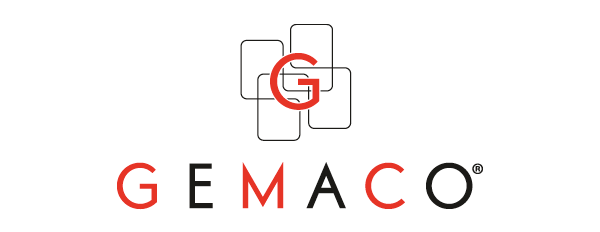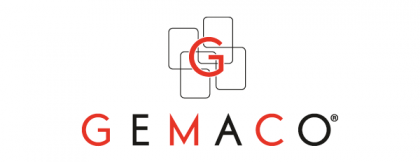Borgata Fires Back at Gemaco in Phil Ivey Edge Sorting Case
The legal heat continues to spew in the newest front in the three-way battle between New Jersey’s Borgata Hotel Casino & Spa, playing-card manufacturer Gemaco, and high-stakes gamblers Phil Ivey and Cheung Yin Sun. The Borgata’s $9.6 million lawsuit against Ivey, Sun and Gemaco has spun from one front to the next over the past several months, and just days after a lengthy submission from Gemaco counsel in support of its own motion for summary judgement in the matter, Borg attorney Jeremy Klausner has filed a scathing response.
 Among other claims, Klausner has stated that the most recent Gemaco filing contains “factual inaccuracies” and is designed for “audiences that do not have all the facts, like the general public for whom most of it is intended.”
Among other claims, Klausner has stated that the most recent Gemaco filing contains “factual inaccuracies” and is designed for “audiences that do not have all the facts, like the general public for whom most of it is intended.”
It’s an interesting claim, noting that at various points in this case, Borgata appears to have forwarded certain filings on to select New Jersey media outlets before that info has become available via online court records. Neither Gemaco nor counsel for Ivey and Sun have done that, meaning that if anyone’s been attempting to play the media, it’s the Borg.
Regardless of the claims made in the legal missive, and despite the ongoing attempts to portray the Borgata as the innocent victim, the response offers little in the way of new information. Instead, the Borgata-v-Gemaco portion of the case appears to have devolved into the equivalent of legal finger-pointing, with neither the casino nor the cardmaker wanting to take any responsibility for the circumstances that allowed Ivey’s and Sun’s gambit to succeed.
Here’s the formal statement that not only leads off the latest Borg filing, but illustrates the tone of what follows:
The defendants in this case are intent on misstating the law and closing their eyes to the facts in attempts to make this case seem more complex than it is. Although their rhetorical technique is universally criticized as misleading, it can be effective with audiences that do not have all the facts, like the general public for whom most of it is intended. Gemaco’s opposition to Borgata’s motion for summary judgment employs the same gambit. Despite the clear holding in [a case involving the Atlantic City Golden Nugget], Gemaco persists in arguing the Casino Control Act pre-empts Borgata’s tort claims. It does not. With respect to the facts, and despite a mountain of evidence that Gemaco’s cards were defective, including its own admission and the cards themselves, Gemaco argues Borgata “provides no evidence to support its contention.” Unlike the public, this Court has access to all the information necessary to decide this case and should not be mislead by the rhetoric.
From there, it’s on to six segmented parts, highlighting various claims made by Gemaco’s attorneys in their own recent filings. The topics range from what legal body has responsibility for adjudicating Gemaco’s alleged tort (supposedly providing miscut cards which were then exploited by Ivey and Sun), to an alleged misstatement of fact regarding the testimony of a New Jersey State Police detective who reviewed the case of Ivey’s and Sun’s allegedly-cheating mini-baccarat play.
On that topic, the Borgata disputes that the New Jersey DGE [Division of Gaming Enforcement] has ever been specifically involved in investigating the Ivey/Sun edge sorting case. The Borgata does, however, acknowledge that the DGE is fully aware of it.
This excerpt illustrates the difference Borgata cites:
Some factual inaccuracies must be highlighted with respect to this issue. Gemaco states that “the Division of Gaming Enforcement…conducted [an] independent investigation[] and there was no finding that Gemaco violated any laws or regulations….” [citation] There is absolutely no evidence that the DGE conducted any investigation. Contradicting itself in the very same paragraph, Gemaco highlights the fact that the DGE “[does] not have any investigative reports or similar documents relating to the case at hand.” [citation] If there are no reports or similar documents, how can Gemaco say that an investigation was conducted or any finding was made? It cannot. More important, Detective Andrew Koch testified that no one from DGE even inspected the cards. [citation]
Gemaco also tries to confuse the issue by creatively interpreting Detective Koch’s testimony. Gemaco would have this Court understand that Detective Koch, in his discretion, administratively closed his investigation without issuing a criminal complaint, although he could have done so. [citation] This interpretation does not square with the actual testimony. It is clear that Detective Koch wanted to bring a criminal complaint. He testified that he determined edge sorting is a cheating scam. [citation] Although there are circumstances where Koch can sign a criminal complaint, he was directed not to do so in this case. [citation] Instead, he was directed by his superiors to conduct his investigation, meet with the
Attorney General’s Office, and let them decide whether to bring charges. [citation] The Deputy Attorney General Koch was working with sought permission to charge Ivey and Sun, but permission was denied by her superiors. …
Of course, the deputy attorney general’s superiors at New Jersey’s Office of the Attorney General are also the superiors of New Jersey’s Division of Gaming Enforcement, which sort of explains why the Borgata logic chain stops where it does.
Another section of the latest brief details the ongoing dispute between Gemaco and the Borgata as to whether the cards supplied by Gemaco were defective, or whether the so-called “industry standard” print variance of 1/32nd of an inch is indeed an accepted standard or whether or not two Borgata execs testified about such variance as it could exist on most cards. The latest Borg brief states that Gemaco counsel misconstrued testimony from the two, stating it was about another, not-relevant-to-this-case, circumstance.
The legal hair-splitting over “industry standards” versus New Jersey’s stated regulatory requirements remains the area here final responsibility in the case ultimately will be determined. This excerpt from the latest Borg brief goes right to the heart of it.
More important, as stated above, there is overwhelming evidence that the playing cards do not comply with applicable regulations. This Court can and should determine that the cards at issue violate those regulations. Once that determination is made, Gemaco’s argument that the regulatory compliance guarantee is irrelevant becomes moot. Because the cards do not comply with the regulations, the guarantee was breached.
That sounds nice and slick, boxed and wrapped and tied up with a fancy bow, but it’s just not that simple. The applicable New Jersey gambling code demands that all cards be “identical” and indiscernible to players, but there are two huge problems with that particular line of code (New Jersey Administrative Code §13.69E-1.17(d).”
One of them is with the first part of that legal requirement, which reads, “The backs of the cards shall be identical,” and which was omitted from the Borg quote here of the rest of that line of regulatory code. Read in its most literal sense, the NJ law sets an impossible standard, since no known production process can ever produce truly “identical” copies — differences always appear as one zooms in on higher scales of magnification.
And that “zooming in” goes to the second point. The alleged “Queen of Sorts,” Ivey’s companion Cheung Yin Sun, trained her eyesight over a period of years to do this sort of zooming in, effectively seeing minor print variations too small for almost any other humans to notice.
Yet the cards as supplied by Gemaco had always been good enough, until the scheme engineered by Ivey and Sun was put into play not only at the Borgata, but at several casinos around the globe. Even then, the scheme would not have been possible had the Borgata not changed the rules of the mini-baccarat game in several important ways, adding meat to the Gemaco’s claim that the casino employed the cards in a way never intended by the cardmaker.
“The legislature did not intend that casinos could be victimized by negligence and then barred from seeking relief in the courts,” writes the Borg’s counsel, utterly ignoring the casino’s own role in the loss to Ivey and Sun. “Contributory negligence” is not a phrase you’ll find in these Borg-purchased legal briefs.
It’s all entertaining, at least, and in addition to whatever judgment finally emerged, it’ll likely have a ripple effect through certain casino-gaming practices. Ivey’s and Sun’s schemes have shown again that full-bleed card designs are susceptible to exploitation, and that’s been known in the gambling world for decades. Though the Borgata continues to claim innocence in the affair, it’s clear that the casino’s $9.6 million loss to Ivey and Sun was at least partly the consequence of their own actions.




















COMMENTS